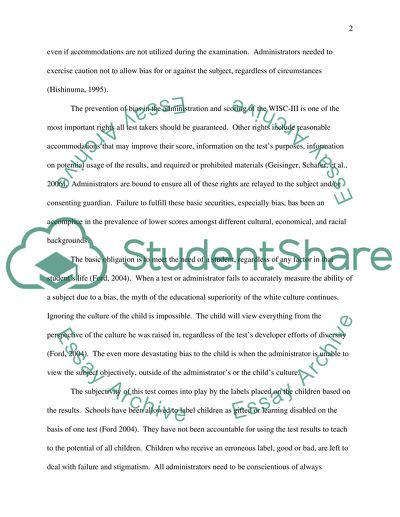The Wechsler intelligence scale for children Essay. Retrieved from https://studentshare.org/education/1509755-the-wechsler-intelligence-scale-for-children
The Wechsler Intelligence Scale for Children Essay. https://studentshare.org/education/1509755-the-wechsler-intelligence-scale-for-children.


